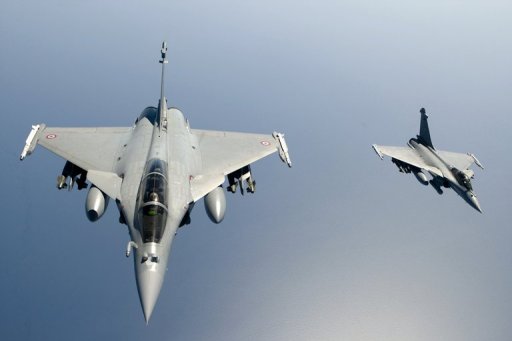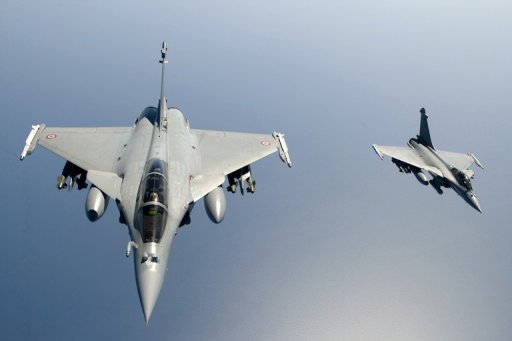French report says NATO plans to use attack helicopters in Libya to help break military stalemate with forces loyal to Muammar Gaddafi
 NATO plans to use attack helicopters in Libya to help break a military stalemate with forces loyal to Muammar Gaddafi, a French diplomatic source said on Monday.
NATO plans to use attack helicopters in Libya to help break a military stalemate with forces loyal to Muammar Gaddafi, a French diplomatic source said on Monday.
Continued shelling of the opposition-held western outpost of Misrata illustrated the scale of the problem facing opposition forces and NATO. Revolutionists said Gaddafi forces were trying to advance into the long-besieged city under cover of rocket and mortar shells.
The French daily Le Figaro reported that 12 helicopters, which could launch more accurate close attacks on pro-Gaddafi forces and targets than fixed wing aircraft, were shipped out to Libya on the French warship Tonnerre on May 17. "It is not just French helicopters ... it's coordinated action by the coalition," the diplomatic source said, in response to the newspaper report. "It is at NATO level."
The source said the move could not be considered as part of a strategy to use ground troops in the conflict, now in its fourth month.
There was no immediate comment from NATO. However, a British Ministry of Defense spokesman denied having any plans to deploy attack helicopters, as French Armed Forces spokesman Thierry Burkhard declined to confirm the report.
According to Le Figaro's source, French special forces, who have been operating in Libya to help identify targets for NATO planes since the start of air strikes, could now be reinforced and deployed to guide helicopter attacks.
The use of helicopters, while it would allow NATO forces to launch closer and more accurate attacks, would pose additional risks for NATO. Helicopters would fly lower and be more vulnerable than aircraft flying well above depleted air defenses. The downing of helicopters could draw ground forces into rescue efforts.
 Meanwhile, Russian Foreign Minister Sergei Lavrov said he would meet on Monday with a Libyan opposition delegation in an effort to promote a ceasefire and negotiations. He said the delegation represented the National Transitional Council and was led by Abdurrahman Shalgham, a longtime foreign minister and envoy to the United Nations until he denounced Gaddafi in February. "It is important at this stage to agree a makeup of participants in future talks - which I hope will be soon but are inevitable in any case - that would represent the interests of all the political forces, all the tribes in Libya," he said.
Meanwhile, Russian Foreign Minister Sergei Lavrov said he would meet on Monday with a Libyan opposition delegation in an effort to promote a ceasefire and negotiations. He said the delegation represented the National Transitional Council and was led by Abdurrahman Shalgham, a longtime foreign minister and envoy to the United Nations until he denounced Gaddafi in February. "It is important at this stage to agree a makeup of participants in future talks - which I hope will be soon but are inevitable in any case - that would represent the interests of all the political forces, all the tribes in Libya," he said.
In a related development, Mustafa Abdul Jalil, the head of the opposition’s provisional administration, was to meet Turkish President Abdullah Gul, Prime Minister Recep Tayyip Erdogan and Foreign Minister Ahmet Davutoglu during a two-day visit. The meetings mark the highest-level contact so far between Turkey and the revolutionists.
Earlier this month, Erdogan urged the Libyan long-time ruler to "immediately" cede power and leave Libya. Gaddafi’s departure has become "inevitable," he said, adding the Libyan leader "must take this historic step in the name of Libya's future, territorial integrity and peace."
